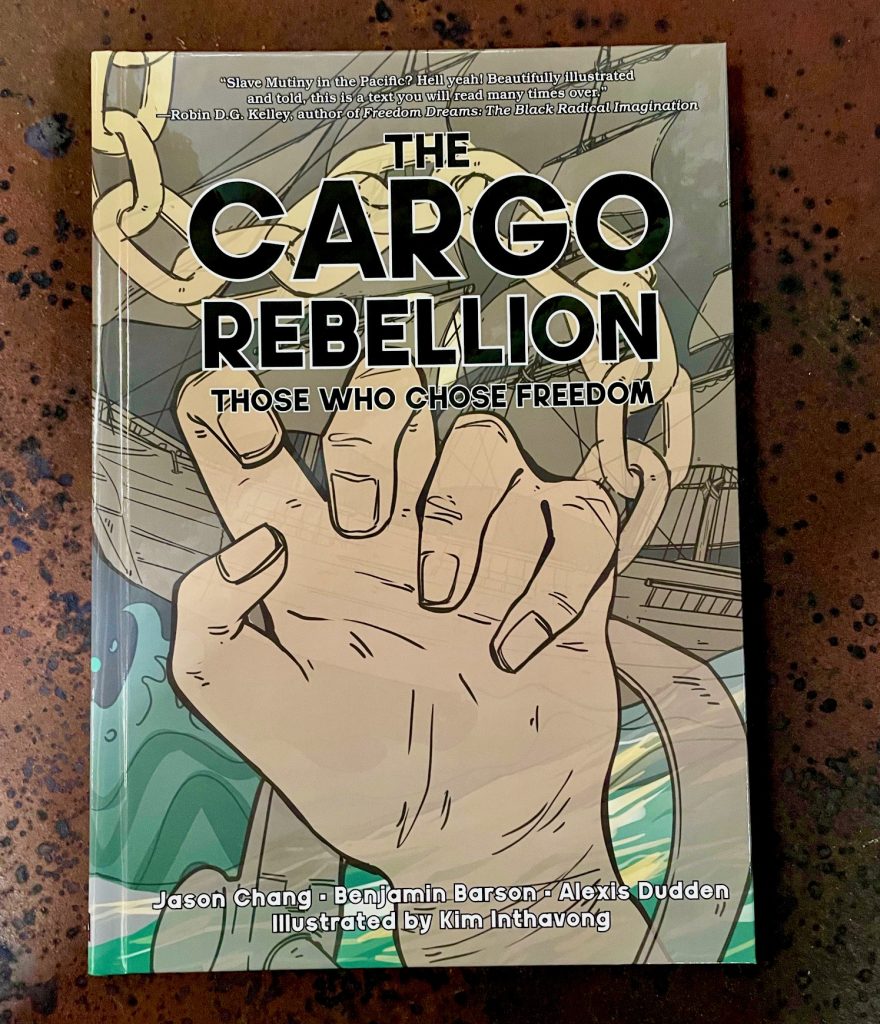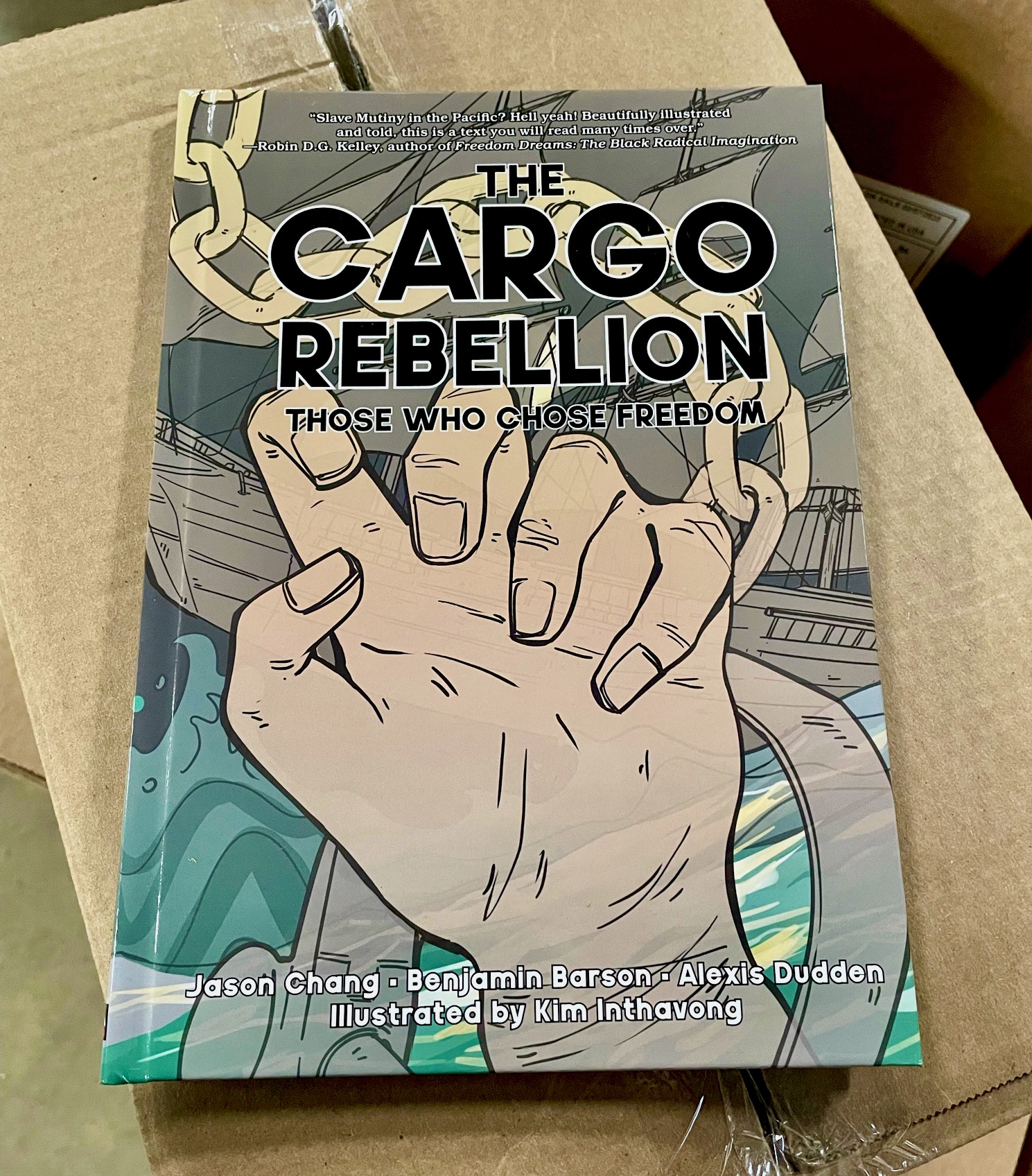By Paul Buhle
Comics Grinder
February 7th, 2023

The Cargo Rebellion: Those Who Chose Freedom. By Jason Chang, Benjamin Barson, Slexis Dudden and (artist) Kim Ithavopng. PM Press, 2022, $16.95.
This is a good-looking experiment in a kind of collective art-and-text. So much has now been written about the Trans-Atlantic slave trade—no full blown comic yet—that the subject of the “Coolie Trade” can now seem to have been somewhat neglected. Actually, Asian-American scholars, among others, have been working long and hard on documenting this story. But we have here a effort to bring the story to light for young readers in particular.

Legitimized by the Opium War of the 1840s, the forced opening of Hong Kong to British domination also opened wide labor contracts for impoverished Chinese workers from Hawaii to California and parts South, China to Peru. The artist and writers treat this passage as a slavery-equivalent and they have a point. Like the transport of workers from India to the Caribbean later in the century, it was coercion-or-starvation, albeit one that, for some, would bring integration into economies in post-slavery times, with possibilities of collective struggle emerging sooner in their trajectory.

The comic art helps to propose a different way of viewing struggle on the high seas. The American government wanted the struggle to be seen as piracy, on the basis of a dubious “law of the sea” passed in 1836. The Chinese Quing courts insisted that Americans had deceived and kidnapped the victims. Abraham Lincoln ended the “coolie trade” formally in 1862, although the book asserts on good authority that racial stigma rather than something like Black emancipation prompted the “great emancipator” to take this step.

The traffiking in human lives, Chinese lives, continued in the American West as railroads were built and assorted industries, notably cigar-making, opened the way for underpaid servile labor. Sam Gompers himself, outspokenly racist leader of the newly-created American Federation of Labor (AFL), testified to Congress against the presence and not merely the continuation of Chinese immigration and immigrants.
The Cargo Rebellion closes with a short scholarly essay on the “Robert Boone Mutiny” of 1852 and a commentary on “Teaching Asian Indenture” by Jason Oliver Chang. One could lament that the comics themselves do not take up enough of the pages in this book. But that the larger subject could be tackled with such energy and effort dulls this complaint. It’s a good book.







